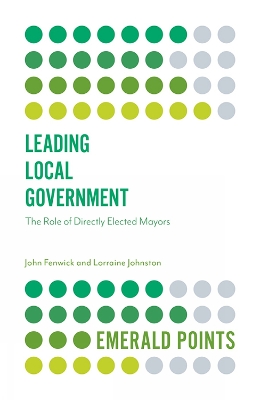Emerald Points
2 total works
Written principally for local government practitioners as well as for those with an academic interest in public leadership, the book asks whether elected mayors offer a new and reinvigorated form of local leadership, whether for individual towns and cities or for wider groups of combined authorities at the regional level. Built on original primary research conducted with mayors, elected representatives and a range of public sector managers, the book offers a fresh perspective that recognises mayoral achievements in some areas – including economic development – but finds that mayors do not enjoy widespread public endorsement and do not represent devolution of power in any meaningful sense. Above all, the book argues that elected mayors do not represent democratic renewal in a country which remains highly centralized. Using an historical account of early local government leaders together with international comparisons from the United States and Europe, the authors present the argument that, twenty years into the mayoral experiment, the mayoral initiative has so far failed to match the aspirations of central government for a new and effective form of local leadership.
This book adopts a highly critical approach to the ways in which organisations have been analysed by orthodox theories and offers instead a perspective on elements of organisational behaviour including leadership and its failures, structures, cultures, bullying and the denial of individual voice, firmly rooted in the critical understanding of power and control. Professor Fenwick draws from international examples of practice and finds grounds for optimism in the distinctive positive values of the public sector organisation.
This book is an invaluable source for those with an interest in organisational behaviour in the public sector, designed for many audiences including students embarking upon study of how such organisations work, researchers who wish to assess aspects of the topic in greater depth, or readers with a practical interest or involvement with the organisations in question.

